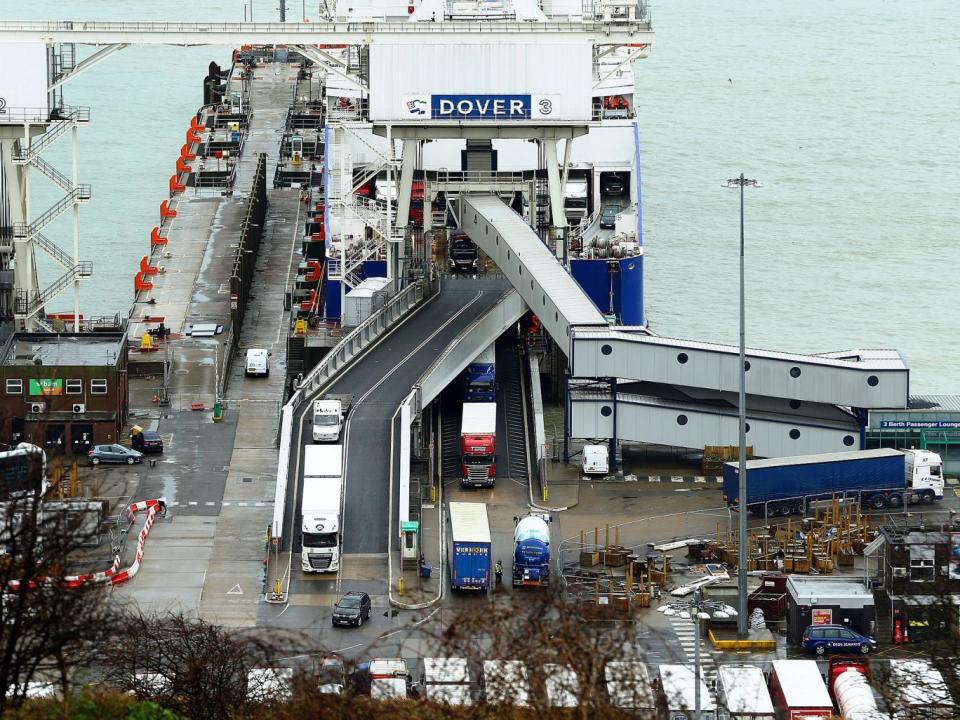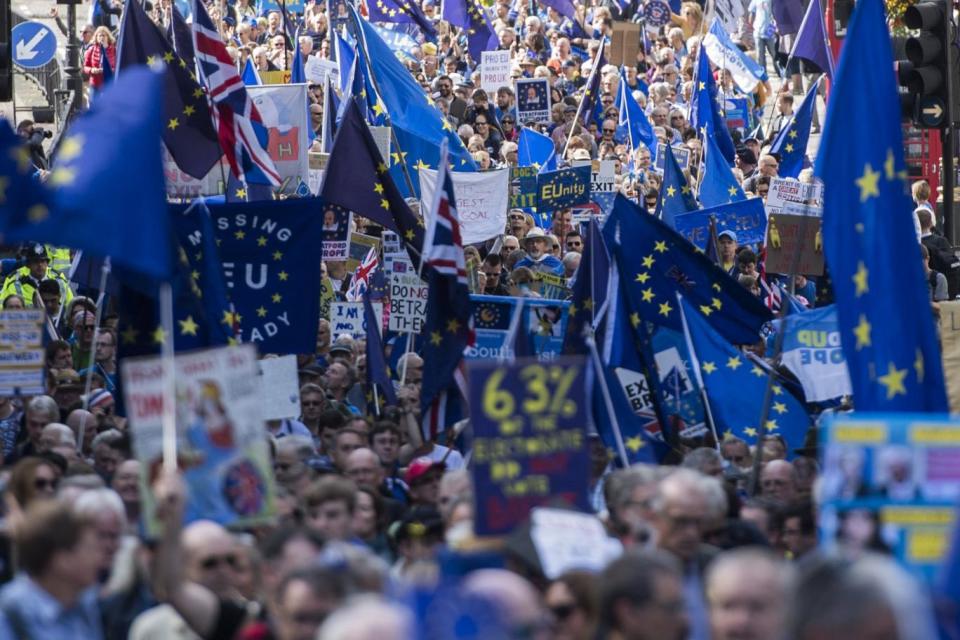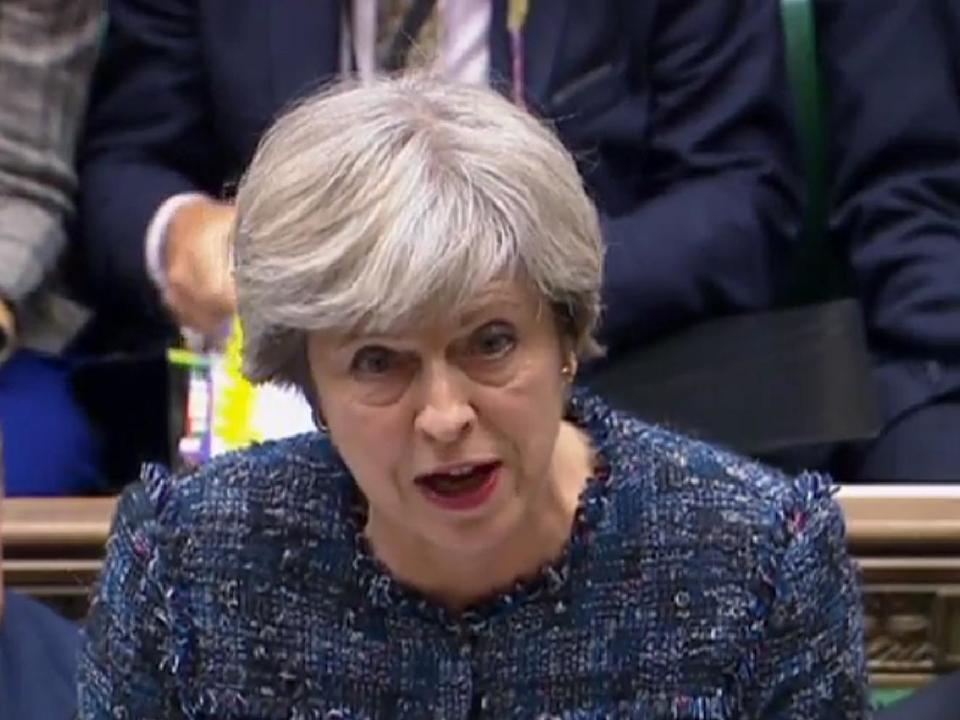Brexit: What happens if talks collapse and there's no deal?

Ahead of this weeks European Council meeting in Brussels, Theresa May may be hoping for a breakthrough in stalled Brexit talks. Behind the scenes, however, many of her own MPs and ministers still think negotiations could collapse.
An increasingly vocal tenancy in the Conservative party wants the Government to prepare for no deal, or even wants it to happen.
Former Vote Leave chief Dominic Cummings has previously said negotiations are unfolding as a “shambles” thanks to “unforgivable” blunders by the Government. So what happens if they do collapse and there is no deal?
Trade takes a hit

In the absence of a deal to replace or extend the UK’s membership of the EU’s single market, Britain would begin trading with the EU on what are called “World Trade Organisation (WTO) terms”.
This is worse than it sounds: the WTO is known for its promotion of free trade, but the free trade it stipulates on its members is far less complete than Britain’s current arrangement with the EU – on which many businesses rely.
A Parliamentary report into this state of affairs concluded that “this would almost certainly involve the immediate imposition of tariffs across a range of sectors”.
Some tariffs would be more significant than others: the highest would be on British farmers, who would face 30-40 per cent charges for exporting to the EU, effectively making many exports unviable. Lower tariffs would be on things like automotive parts, where a five per cent charge would apply.
These tariffs are what Britain, currently a member of the EU, charges countries outside the EU, as a member of the trade area. Britain would, now outside the EU and without any special opt-out, be on the other side of the fence.
Finance is hit very hard

Trading on WTO terms would lead to the immediate loss of what are called “passporting rights” to banks and other financial institutions based in the City of London.
British banks currently have those rights, and they mean that bank can do business throughout the EU without setting up a subsidiary in that EU country or relocating to it.
Loss of passporting rights would mean the immediate end to any business UK banks had in the EU. The City regulator, the Financial Conduct Authority, says 5,476 British firms rely on passporting rights and that their business brings in £9 billion in revenue every year to the UK. Paris, Frankfurt, or Dublin are seen as alternate locations for banks to relocate to so they can still do business with hundreds of millions of EU citizens.
This would have a significant effect on the British economy: The UK has a trade surplus when it comes to services, rather than goods, where it has a deficit. In the third quarter of 2016 that surplus was £25.1 billion. The Office for National Statistics says financial services were the largest contributor to this surplus, £11.0 billion.
The BBA, which represents financail services, says: "Behind these lost operational rights are established services that EU and UK clients and customers depend on, and jobs created to undertake that activity. These services will need to be restructured, reauthorised and reviewed. That will be disruptive, costly and time-consuming."
Britain’s wider economy

We don’t know what precise effect these massive reduction in trade and UK exports would have on the British economy, but it’s fair to say it would not be good. HM Treasury forecast ahead of the referendum, whose most pessimistic scenario was predicated on talks collapsing, suggested that such a Brexit would “push the UK into recession and lead to a sharp rise in unemployment”.
Under the WTO rules scenario, the Treasury’s modeling expects unemployment to rise by 820,000 in two years, Sterling to fall by 15 per cent, and inflation to rise by 2.7 per cent.
The effect on the EU

The EU economy would likely be damaged by the collapse of talks, but the effects are difficult to quantify.
53 per cent of British exports come from the EU, and any disruption in trade would work both ways.
But the EU27’s economies are about $13.5 trillion compared to the UK’s $2.6 trillion – the two are not equal in size and so the relative importance of the UK’s economy to the EU as a bloc is less than the other way around.
The effect would likely be un-even – certain sectors and businesses that trade closely with the UK would be hit hardest. Where there are fewer links, the effect would be less.
Regulations and laws

Assuming the Government’s Withdrawal Bill (formerly known as the Great Repeal Bill) passes Parliament, the UK will be incorporating EU regulations into law. At the point of exit little would change in the way of “red tape” or other EU regulations – they would now be UK law. Brexit Secretary David Davis said on a visit to Washington DC at the start of September that the Great Repeal Bill is "actually is the Great Continuity Bill – it keeps in our law all the standards that are there now".
Whether this stays the case into the near future would depend on the Government’s approach – Whitehall’s strategy of negotiating a deal with the EU is in large part predicated on the idea that when the UK leaves it will have regulations very similar or identical with the EU, which should make things easier.
If that idea is ditched, the UK could go its own way – turning itself into an offshore tax haven, as Philip Hammond and other Tories have suggested, in absence of their preferred approach. Alternatively, they might hold out for a deal in the near future and change little.
There will be some areas where keep EU laws won't be enough, however. New barriers would likely be erected in areas like data protection that would make it potentially illegal for UK businesses to deal in EU citizens' data without some kind of accreditation. On security, too, cooperation agreements that were not extended or replaced with something else would lapse, potentially allowing criminals to slip through the net.
EU citizens

EU citizens living in the UK and UK citizens living in the EU currently face uncertainty about their specific rights. Under a no deal scenario, that uncertainty would deepen.
Ministers have previously said they are using EU nationals as a “bargaining chip” in negotiations – once those negotiations collapse, what happens is up to them.
The3Million, a campaign group that represents EU citizens living in the UK, warns that EU citizens are already living in "a new political landscape and an unprecedented uncertainty as to the nature of their resident status in the UK post Brexit".
The politics

Theresa May has repeatedly said that “no deal is better than a bad deal”, so not getting a deal would not necessarily be the end of her.
While the resulting economic malaise and perception of incompetence would probably seriously damage the government in the eyes of the public, many Tory MPs who favour no deal would probably be fairly content with the outcome.
Because it is Tory MPs who choose who the prime minister is, in absence of an election, it would be down to them whether the Prime Minister survived.
On the other hand, Boris Johnson and anyone else with leadership ambitions currently keeping a low profile might see any political hit for May as their opportunity to strike.
From the EU’s perspective, the resulting punishment meted out in the UK economy would probably ensure nobody ever tried leaving the EU again for the near future – lest they turn out like Britain.

